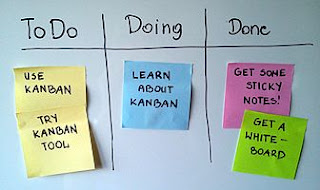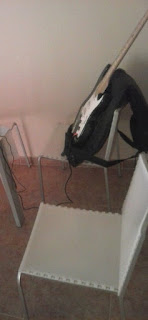New song: "You're Repulsive"
This one was a pure case of pull. I was just heading to my daily activities of the non-musical kind, when the Muse came straight to me and said: MUSE: hiya, here is the usual song kit for you, today we have a bit of a melody with a bass line behind. You're welcome. Now here's the deal: you can do with this what you've been doing lately, just record the ideas and put them in your huge pile of unfinished stuff, but I was thinking, maybe you can also rearrange your day, and crank out something quick for that weekly thing you've been doing lately? ME: oh shit. I mean, thank you Muse. The song was pieced together in around 3 hours, out of which 40 minutes went to the solo. I had the starting idea for it, opening with a copy of the voice and then moving to something different, and I soon found a second pillar: moving from major scale to pentatonic in the second half increased the "temperature" nicely... The drums again are rudimentary; on...






